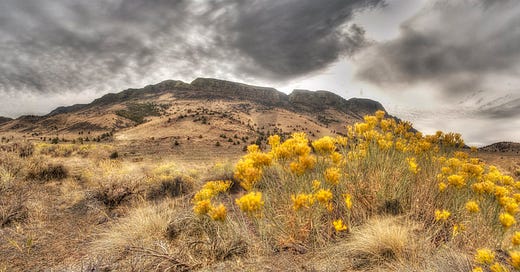The Way: Rep. Wilde on Service, Nesbitt on Collective Action, Moreno on Leadership
Look forward to pieces from Luhui Whitebear, Commissioner Kelley Minty Morris and more!
Did you miss “The Liftoff”?
Read the latest version here
You shouldn’t have to be an “Insider” to be in the know.
Editor’s Note:
You learn that the Clintons, Laura Bush, two major philanthropic foundations, and even Jay-Z are behind a project. Surely, you think, this must be a silver bullet solution.
Who supports a solution, though, matters far less than actually understanding the problem and learning from the people dealing with it. That’s why PlayPump, which relied on children using merry-go-rounds to pump water from wells in Africa, was a complete disaster. The “toys” were placed in communities without their consent. Children in some communities were forced to “play” so that others could get water. And, the devices soon were in disrepair without any sort of servicing on the horizon.
Policymakers and philanthropies in Oregon often demonstrate the same troubling behavior of endorsing a solution before truly understanding the problem. On the left and right, politicians may feel like they have to embrace certain solutions because the “Clintons” or “Bushes” or some fill-in-the-blank celebrity endorsed it. So they search for a problem to apply their solution. This is a horrible idea.
Any good entrepreneur, community organizer or faith leader will tell you that problem solving starts with listening. And this isn’t listening to some contrived focus group or even knocking on doors as part of a campaign; this is the sort of listening that actually leads to exposure to a problem, to seeing the roots of that problem, and to understanding how and why it is a pain point for a member of your community. This is the sort of listening that takes time, genuine empathy and a commitment to constant reevaluation to see how the problem is evolving and changing.
This approach to problem solving doesn’t allow for cookie-cutter, universal solutions. Instead, it forces people to create highly localized, contextualized and adaptable solutions that require substantial investment and monitoring. In other words, these solutions are not the “easy way” nor the sort of thing that fits nicely into a tweet or Instagram post.
That’s precisely why we rarely see these sorts of solutions emerge out of our politics. Politicians make plenty of time for listening to donors, but limit their listening to “town halls” packed with hundreds of people who never have the opportunity to truly teach the officials about the problems in their lives and neighborhoods. Legislative solutions and grant-funded projects commonly display the faults of solution-first thinking, rather than problem-focused responses.
For instance, a bill or nonprofit may pursue an unalterable intervention that may become outdated in just a few years, if not months. Or the bill in question or project under review may just be the hot thing of the day, so of course it deserves outsized attention and support.
Let’s stop asking those in positions to institute change about their solutions. Let’s start demanding that they outline their understanding of the problem. The latter approach will make it abundantly clear if they’ve actually done the hard work of studying the roots of our biggest issues and of getting to know the people most impacted by those issues.
Here’s to a better Oregon,
Kevin
*this piece originally ran in the Bend Bulletin.
To look forward to:
Nathan Howard talks about his new role related to implementing Measure 109.
Reagan Knopp explores the long-term ramifications of redistricting on Oregon politics.
Commissioner Kelley Minty Morris details an incredible effort to respond to failing wells in the Klamath Basin.
Luhui Whitebear thinks about what “home” means and how to make Oregon a better home for people from all backgrounds.
To read:
Rep. Wilde explores the creation of an Oregon Climate Corps.
read more here.
Tim Nesbitt uncovers common ground between “Left” and “Right” Oregonians in an effort to defend the North Santiam River.
read more here.
Aeric Estep reminds us all that we’re much more than just individuals and cogs in a wheel — we’re members of a community, which brings obligations and tremendous benefits.
read more here.
Jim Moore points out that nationally as well as in Oregon more and more voters are occupying the middle of the political spectrum.
read more here.
Alberto Moreno discusses the idea of healthy leadership and the need for elders to support young Oregonians.
read more here.
To do:
Share The Oregon Way with three friends
Nominate a contributor to TOW
Tell us how we can improve!
"Abert Lake, Oregon" by BLM Oregon & Washington is licensed under CC BY-SA 2.0




